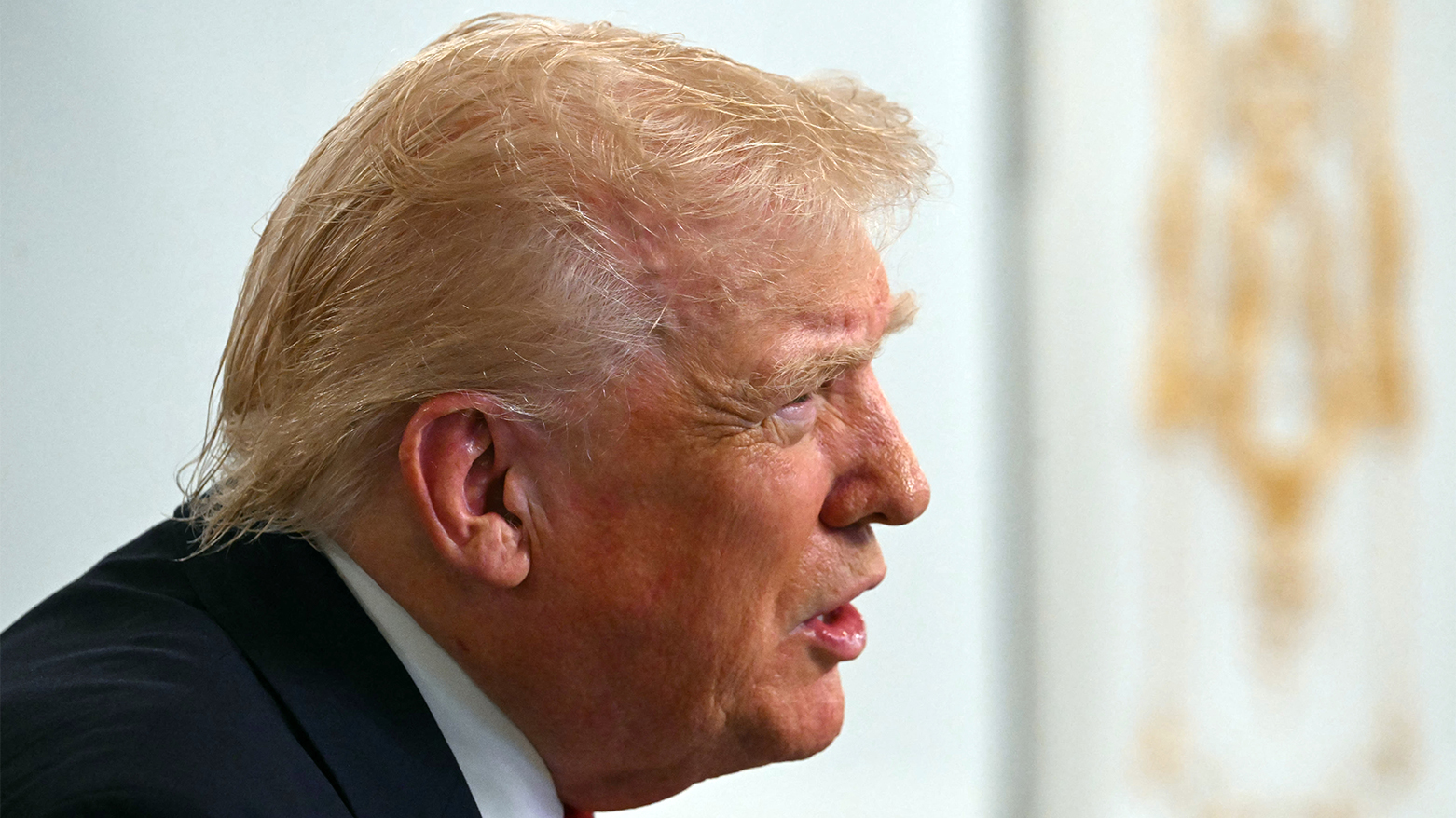Trump Vows to Suspend Migration From ‘Third World Countries’ After Afghan National Kills U.S. Soldier
Trump suspends 'third world' migration after an Afghan national killed a US soldier, sparking a terror probe and Green Card reviews.

ERBIL (Kurdistan24) – United States President Donald Trump has announced a sweeping and controversial suspension of migration from nations he categorized as "third world countries," a drastic policy shift precipitated by a deadly shooting in the nation's capital that claimed the life of a National Guard soldier. The announcement, made on Thursday via social media, marks a significant escalation in the administration's anti-migration stance during a second term already defined by aggressive deportation campaigns.
The directive follows an ambush-style attack in Washington, D.C., allegedly carried out by an Afghan national with links to elite CIA-backed counterterrorism units, an incident that has ignited a political firestorm converging on issues of immigration, national security, and the lingering legacy of the American war in Afghanistan.
According to a detailed report by Agence France-Presse (AFP), the President’s declaration came just a day after the violent confrontation in Washington, which resulted in the death of Sarah Beckstrom, a 20-year-old member of the West Virginia National Guard.
Beckstrom had been deployed to the capital as part of President Trump’s controversial initiative to use military forces to crack down on urban crime. Trump confirmed her death on Thursday, expressing the "anguish and horror" of the nation during a Thanksgiving video call with U.S. troops.
In the same social media barrage that announced the suspension of migration, the President threatened to reverse "millions" of admissions granted under his predecessor, Joe Biden, and vowed to "remove anyone who is not a net asset to the United States."
"I will permanently pause migration from all Third World Countries to allow the U.S. system to fully recover," Trump wrote, linking the tragedy directly to his broader immigration agenda. The shooting has provided the administration with a focal point to justify its intense scrutiny of foreign nationals.
Joseph Edlow, Trump's director of U.S. Citizenship and Immigration Services, stated on Thursday that he had ordered a "full scale, rigorous reexamination of every Green Card for every alien from every country of concern."
His agency subsequently pointed to a list of 19 nations—including Afghanistan, Cuba, Haiti, Iran, and Myanmar—that were already facing U.S. travel restrictions under a previous executive order issued by Trump in June. Additionally, the administration had earlier ordered an immediate halt to the processing of immigration applications specifically from Afghanistan.
The Federal Bureau of Investigation (FBI) has launched an international terror investigation into the incident as harrowing details emerged regarding the suspect. Identified as 29-year-old Rahmanullah Lakanwal, the alleged gunman is an Afghan national who, according to multiple U.S. media reports cited by AFP, was a member of the "Zero Units."
These were elite, CIA-backed counterterrorism groups that operated in Afghanistan. Jeanine Pirro, the U.S. attorney for Washington D.C., described the shooting as a "brazen and targeted" attack.
According to prosecutors, Lakanwal, who had been living in the western state of Washington, drove across the country to the capital before opening fire with a .357 Smith and Wesson revolver on a group of guardsmen on patrol just a few blocks from the White House.
The attack has left another soldier, 24-year-old Andrew Wolfe, "fighting for his life," according to President Trump.
The suspect himself remains in serious condition after being apprehended. Pirro announced that Lakanwal has been charged with three counts of assault with intent to kill, with the caveat that these charges would be immediately upgraded to first-degree murder following the tragic death of Specialist Beckstrom.
Despite the swift legal action, officials admitted they still had no clear understanding of the motive behind the shooting, leaving investigators to piece together why a former U.S. ally would turn against American troops on American soil.
The incident has triggered a fierce blame game regarding the vetting of Afghan refugees.
CIA Director John Ratcliffe confirmed that the suspect had been part of a CIA-backed "partner force" fighting the Taliban and was brought to the United States as part of a program designed to evacuate Afghans who had collaborated with the agency.
Senior Trump appointees, including the heads of the FBI, CIA, and Homeland Security, have insisted that Lakanwal was granted unvetted access to the United States due to what they termed "lax asylum policies" following the chaotic U.S. withdrawal from Afghanistan under the Biden administration.
However, this narrative is contested by advocacy groups. AfghanEvac, an organization that facilitated the resettlement of Afghans after the military withdrawal, asserted that individuals like Lakanwal underwent "some of the most extensive security vetting" of any migrants entering the country.
Crucially, the group noted that Lakanwal was granted asylum in April 2025, during the current Trump administration, and would have been eligible to request permanent residency a year later.
Shawn VanDiver, the president of AfghanEvac, cautioned against collective punishment, stating, "This individual's isolated and violent act should not be used as an excuse to define or diminish an entire community."
President Trump, however, utilized the tragedy to validate his decision to deploy hundreds of National Guard troops to Democrat-run cities like Washington, Los Angeles, and Memphis—a move that has sparked lawsuits and allegations of authoritarian overreach.
In his Thanksgiving address, Trump suggested that the presence of the troops was validated by the attack itself. "If they weren't effective, you probably wouldn't have had this done," Trump said, speculating, "Maybe this man was upset because he couldn't practice crime."
In the wake of the shooting, Pentagon chief Pete Hegseth announced that an additional 500 troops would deploy to Washington, bringing the total military presence in the capital to 2,500 personnel.